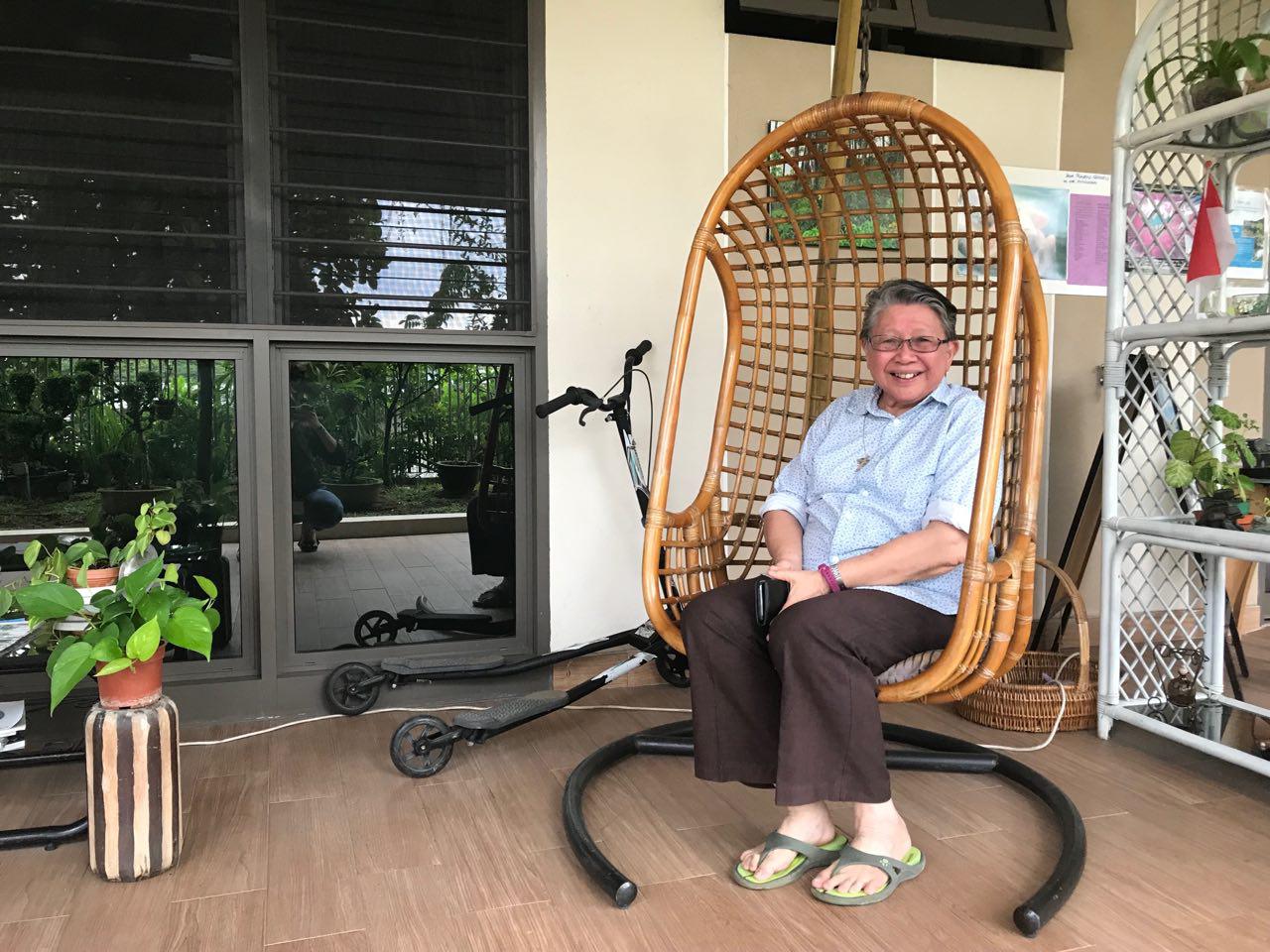At first glance, you might not guess that Sister Elizabeth Lim is a nun.
For one thing, she doesn't wear a habit, or a veil — although those do exist for the Sisters of the Congregation of Our Lady of the Good Shepherd (a Catholic religious order), so she doesn't even look like her fellow sisters.
This practice, she explains, goes back to years ago when she and her fellow sisters did house visits to families.
"But the neighbours would see us and think that something must be wrong with the family if a nun was visiting... and so in that way, we found that we gave away their privacy."
And house visits were very important to the sisters' work at the time, ministering to and journeying with them (you can think of them as religious social workers) so the decision was made to do without their veils for greater discretion.
"Uniform" aside, Lim doesn't look or behave her age (whatever that means), which is on the cusp of 80 — especially surprised am I to learn how busy she is and the number of organisations she is involved in.
Despite how packed every day must be for her, though, I am struck by how focused she is in talking to me — we chatted for a good two hours — and how remarkably content and at ease, and at peace, she is.
And it is in a small meeting room, simply furnished with a small hum coming from an air conditioner, that Lim shares her story with me.
Dismissed becoming a nun as a "last resort"
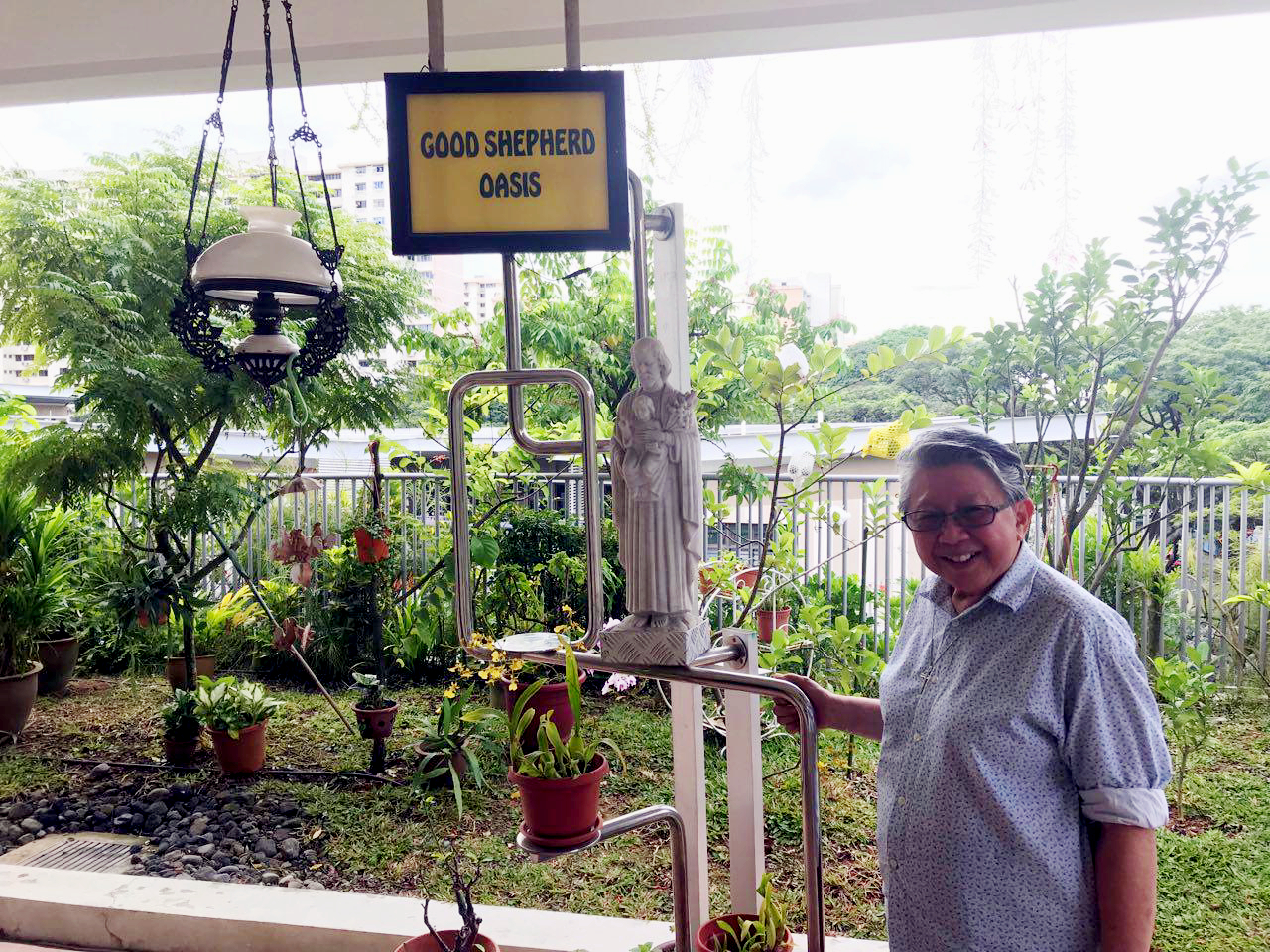 Photo by Jeanette Tan
Photo by Jeanette Tan
Lim is amusingly self-deprecating, frequently breaking into laughter and cracking jokes at her own expense (which you'll see later), and the story of her calling to her vocation is an equally funny one.
She received what she would years later discern to be her first call to the religious life, oddly enough, when she was in primary school at the Convent of the Holy Infant Jesus's Katong Convent.
Sitting in the canteen with her friends, who were joking around, pointing at girls at random and crowing carelessly what they were going to be when they grew up, she turns into a laughing girlish teenager as she recalls and mimics them pointing in random directions saying, "You're going to be a doctor!" "You're going to be a teacher!"
And suddenly, one girl turned in her direction and looking her straight in the eye, declared, "You're going to be a nun!"
"That gave me a shock and I was like, 'Me?! The last resort!' I said. And even when the nuns come walking in school, I see them coming here, I'll run the other side. I would evade them... and I said, 'My foot! That's the last resort!'
But as I said that, something told me, 'Are you sure?'. That gave me a jolt, you know, and I just kept quiet because I heard it here, right, and I just went on and I forgot all about it."
She was stunned. Till now, Lim says she hasn't the foggiest idea why on earth they said that to her. She wasn't even sure who it was that asked her "Are you sure?"; she wasn't practising any religion at the time. But she tells me that's where it started.
"What are you doing here?"
Lim went on and lived her youth and early young adult years as any other Singaporean would — she became a teacher, knowing that she loved children and people, and thrived at it:
"I can teach, I love children, I love people so to speak. And so I said teaching for me was not teaching as teaching per se. It was educating; giving them a kind of a round, a holistic understanding of life and how to enjoy it to the full.
So my whole concept of being a teacher is not to teach and instruct and things like that, but really to be with them to see how they were and mould them — and that was my whole life, and so I went into teaching."
And like many young women, she started meeting young men as well.
But every time she went on a date, something that she couldn't quite call a voice would prod her gently, asking, "What are you doing here...?"
"It may have been my own conversation but it just came like that so I really don't know."
Tricked mom into letting her get baptised
How Lim got baptised is a funny story too — it was actually one of her future sisters-in-law who was first interested in the Catholic faith.
Lim, the sixth of eight children, was raised in a secular household, chided by her mother to hold off joining any religion because it would be difficult if the man she married happened to be of a different faith, and it would just be better and easier to follow him.
So, she shares, she had to deploy some amount of trickery to get her mother's blessing for her to "accompany" her brother's then-girlfriend to an introductory course, got baptised, and soon found herself extensively involved in church activities.
"It was like a dance... I was in Joyful Vanguard, Young Christian Movement, Christian Family Social Movement, and I was in the choir. And I was quite happy, I said, 'I'm doing a lot of church work so don't come back to me!'"
But after almost a decade of teaching (English and Geography at primary one and six respectively) and growing older, the questions, the nagging prompting would not abate. Lim finally "gave up", decided she couldn't provide any more excuses or run away any longer, and entered the Good Shepherd Sisters convent on Marymount Road in 1966.
"And of course many people said 'HA! You're going in? Everybody will come out!' because they know I'm quite a devil and that's why I need to come in!"
Becoming a Catholic nun 101
And the rest was history — the rest of her family, save for her youngest brother (number eight), got baptised as well over the years.
Her parents, too, were baptised before they died, stubborn as they initially were (she never forced them, though).
Lim is now inching closer to the 50th anniversary of her first profession on Feb. 2, 1969, "If I get there!", she adds, with a deep throaty laugh.
What's a profession? It's when a religious makes public vows of poverty, chastity and obedience before witnesses, kind of like the marriage vows a couple make to each other. The Good Shepherd Sisters take a fourth vow too, of zeal for God's people.
And indeed, what's the process of becoming a Good Shepherd Sister?
- First, you have an initial year called postulancy (you can think of this as a free-look, no obligations period).
- Then comes two years of a novitiate (where you can properly call them novices, haha), and then the first profession. After that,
- Six years in theological formation (learning about God, Christianity, the church's teachings, and the charism [basically what makes it special] of the religious order and more), a state called "temporary profession", and finally,
- The profession of final vows — which simplistically put, makes you a religious for the rest of your life.
There remain today only eight Good Shepherd Sisters in Singapore (one recently passed away, Lim says with a slight wistfulness), and three on mission overseas (in Congo, China, Vietnam and Australia). There are many younger ones in Malaysia, and combined both countries have about 40 nuns in the order, but there is heck of a lot going on that the sisters run, or are at least involved in actively:
- Marymount Kindergarten
- Good Shepherd Kindergarten
- Marymount Convent School (a primary school)
- Good Shepherd Centre, which gives shelter to women and children who flee their homes due to family violence or abuse, as well as women who face difficulties after being released from prison. It also helps women who were trafficked into Singapore.
- AHUVA Good Shepherd, which looks after girls who are in pregnancy crisis or other difficulties in their families.
Lim herself has run the gamut: she started at the kindergartens, directed the vocational school, taking charge of communities before she was appointed director of formation for young people discerning the religious life. And for that, she was sent to the U.S., where she got a doctorate of ministry in spiritual direction — and that's where she found the calling she would live for the rest of her life.
And I suppose that focus, calm and peacefulness I see in her must be one of the main attributes a person must have to be a veteran, indeed, possibly Singapore's pioneer, spiritual director.
Today, she runs guided silent retreats at the Good Shepherd Oasis in Lorong 8 Toa Payoh, does counselling and spiritual direction, and journeys with at least 30 people and four or five organisations every month.
What's spiritual direction, anyway?
On the fourth floor of Marymount Centre on Lorong 8 Toa Payoh is the Good Shepherd Oasis, a welcoming, quiet sanctuary you can't help but feel peaceful entering.
There are chairs, home-grown plants and foliage for quiet reflection, and even a hammock in the corridor outside.
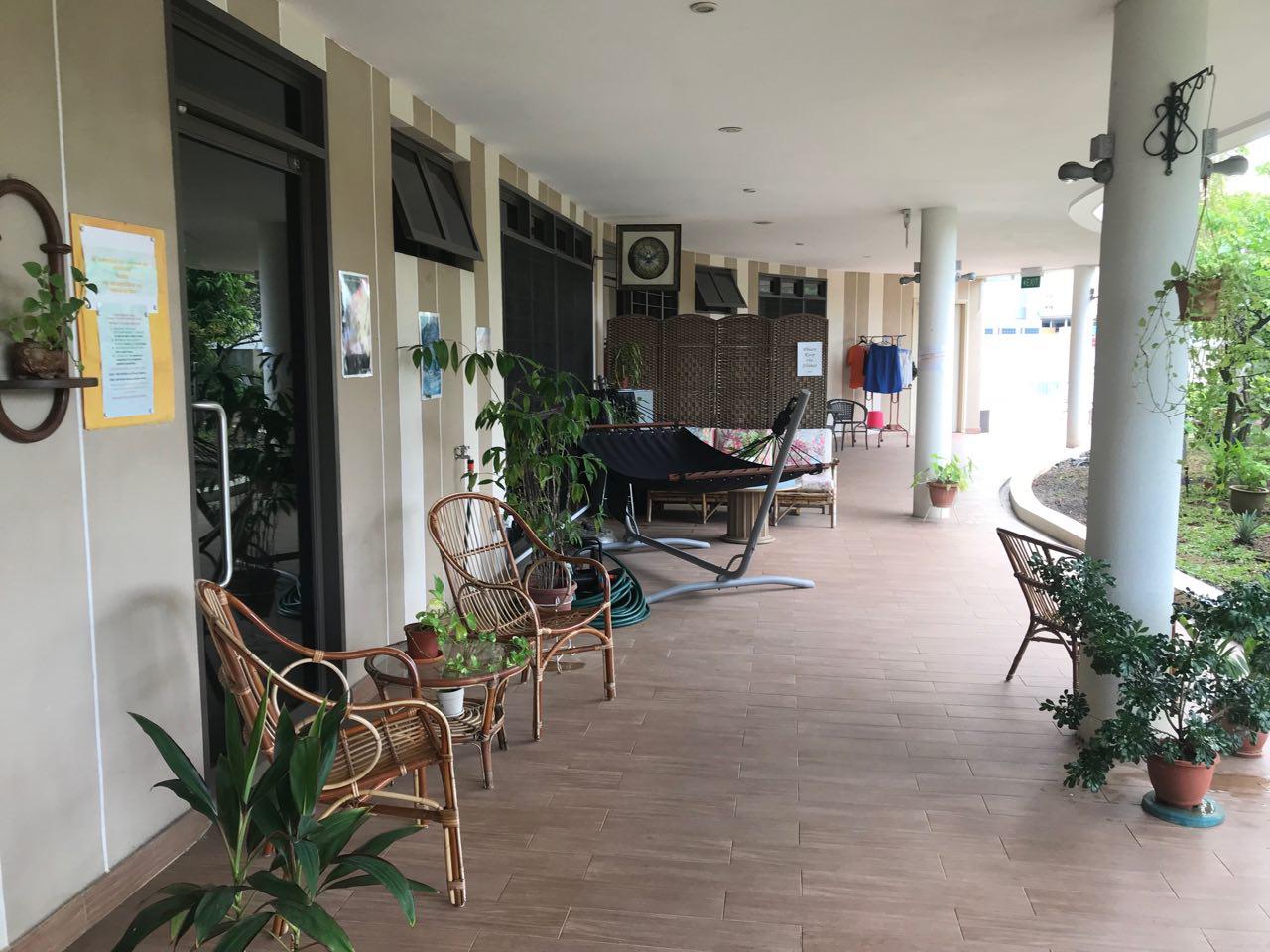 Photo by Jeanette Tan
Photo by Jeanette Tan
The interior is simply furnished, but warm and homely too.
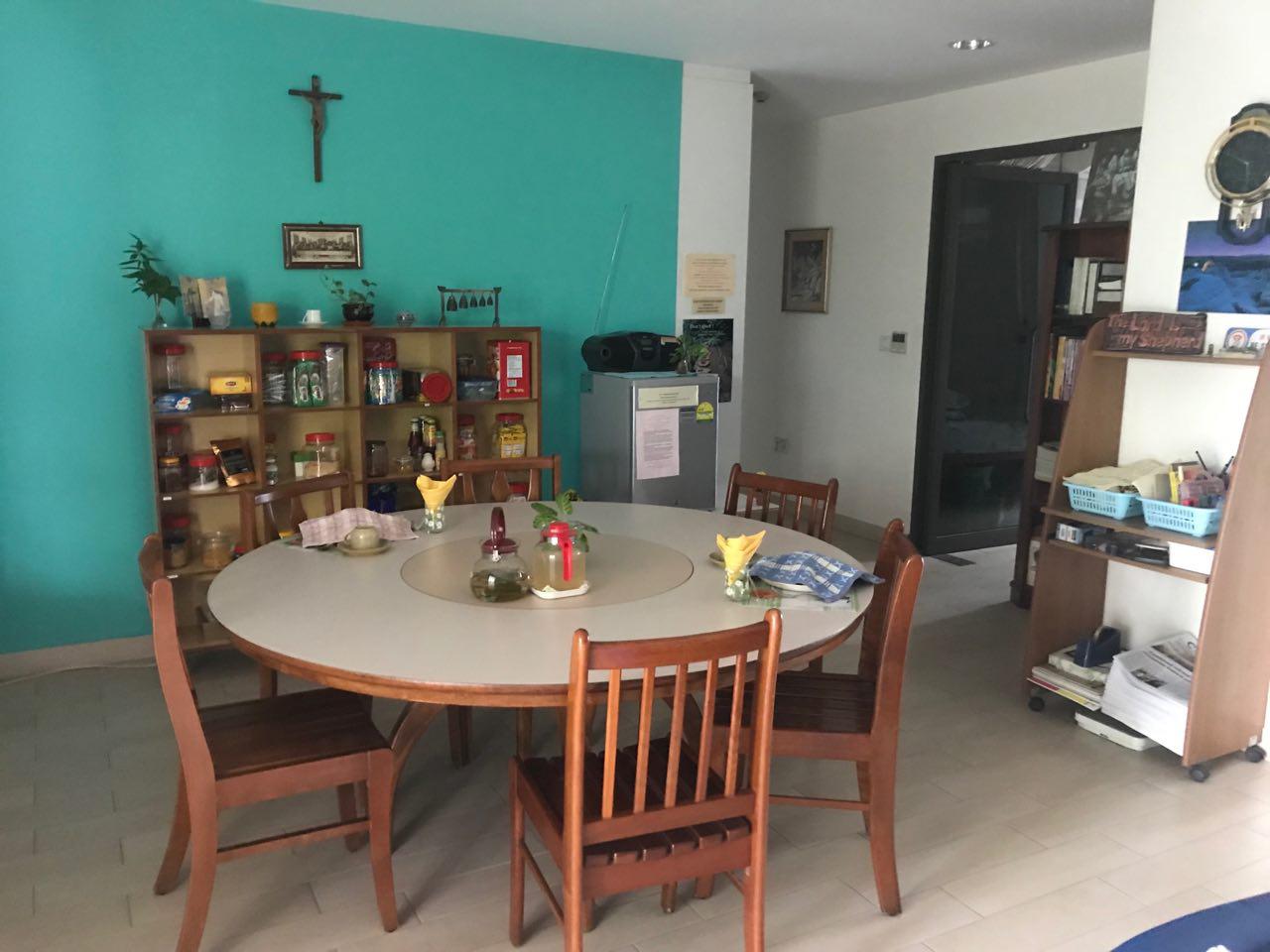 Photo by Jeanette Tan
Photo by Jeanette Tan
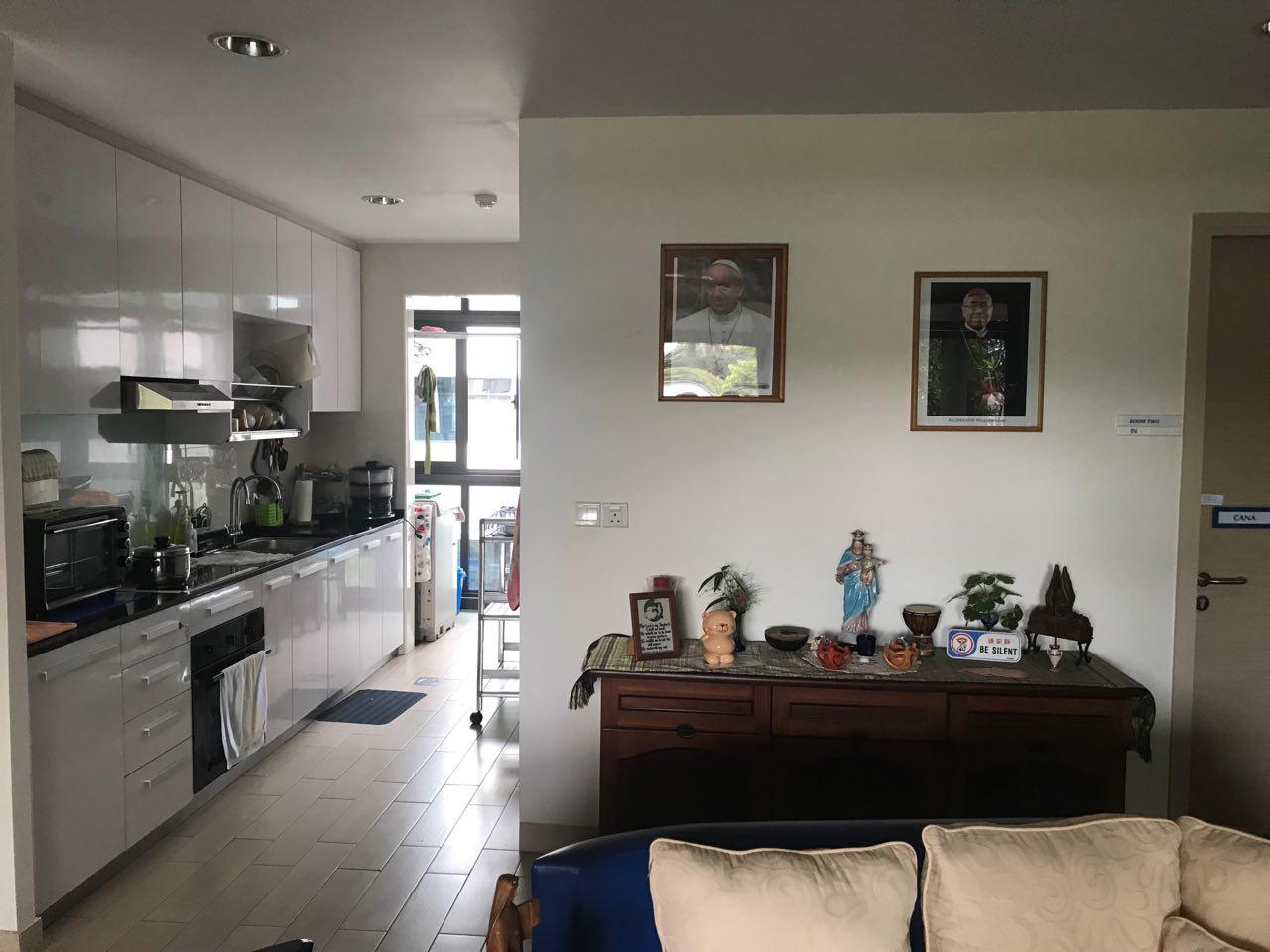 Photo by Jeanette Tan
Photo by Jeanette Tan
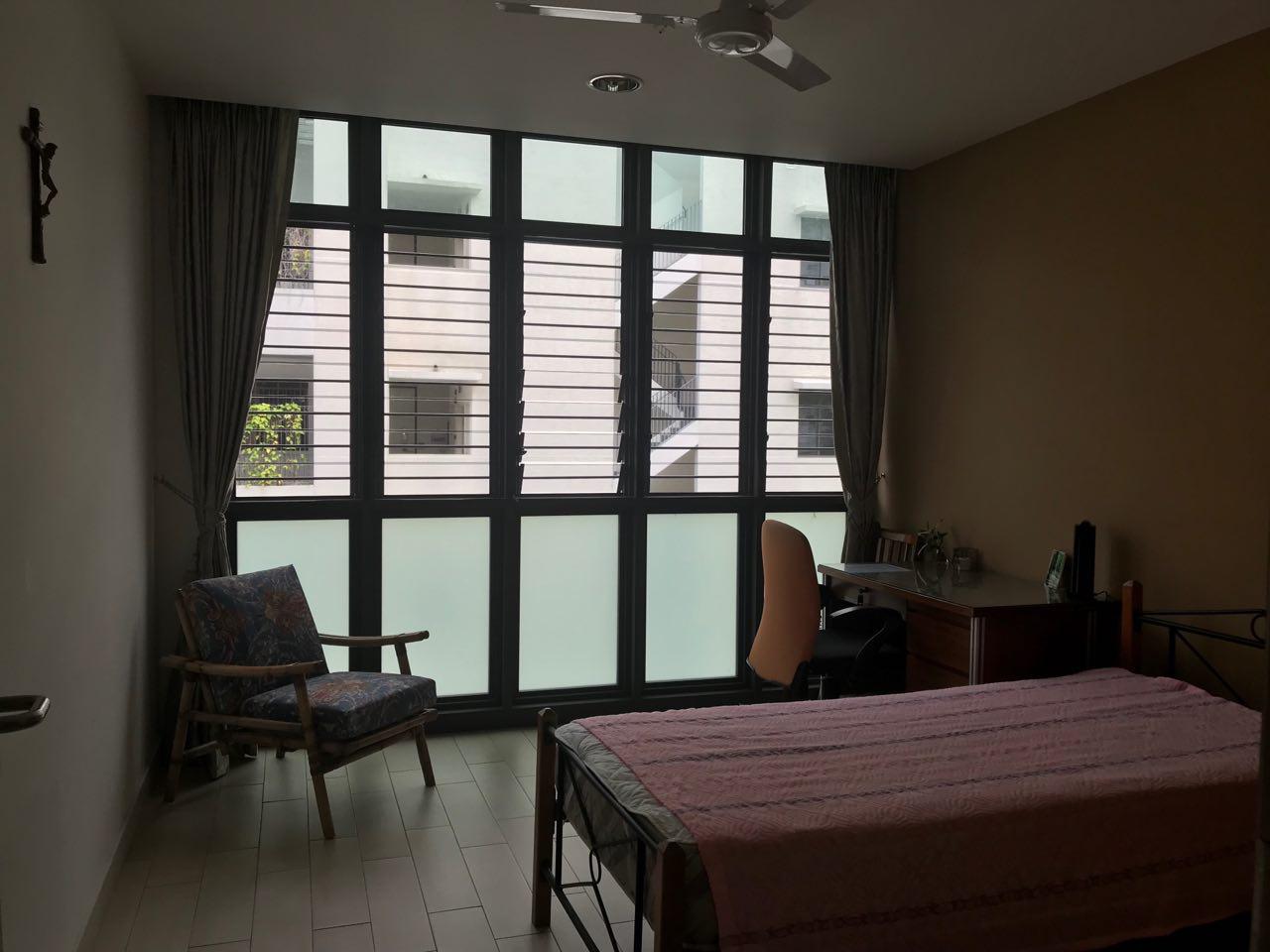 Photo by Jeanette Tan
Photo by Jeanette Tan
This is where Lim's silent retreats and spiritual direction sessions are held — usually anywhere between three to seven, or even 10 days, a retreatant checks in and stays, round the clock, for the duration of the retreat, to tap out of life, turn off their devices, and just look deep into themselves to discover the root of any psychological troubles they are going through.
Especially to a non-religious person, though, the idea of spiritual direction is vague at best, ridiculous at worst — who's to say whether or not we even have a spirit, and why does it need direction? How would one do that, anyway?
Lim believes, though, that every person, whether they believe it or not, has a spirit that longs to be one with itself. And sometimes, that involves some really tough questions and personal confrontations one often isn't ready to take on — for fear of what one might find.
"What are we here for? You can learn so much from your own personal experiences just by asking that. Is there nothing more to the things we are going around doing?
You cannot do it unless you take time to sit and ask 'what's happening?' and in this world, which is so fast-moving, you just want to get busy with one activity after another.
Because in a sense if you keep still, you stop for awhile you tend to hear something inside of you and you're not ready yet. To listen to that invitation, accept it and say 'What do you want to do now?' because the greatest gift God has given to us is the gift of choice.
He's given you everything that is good, but somehow we choose the other because it's either more convenient, or easy, doesn't have to take me out of my comfort zone."
So that, in a nutshell, is why Lim believes everyone should do a spiritual retreat from time to time — especially people whose decisions affect many others.
"I've met enough people who work seven days a week, 11 hours per day, but they leave the firm after two, three years. And I said that's your choice you know, you want to work seven days a week? They say but all my other colleagues are doing the same thing. But you still have your choice.
But I would lose my job; how much job can you lose? You prefer to lose your life rather than your job? Because they really get sick. They think people value them for what they can do.
But God says 'I value you because I love you. I don't care whether you do this or that, but I still love you.' But you feel the guilt when you don't do it, see?
And then you blame it, you say I didn't give you. 'No, I've given you everything', the Lord says. But you choose to take the other road so I can't force you.
God is the greatest gentleman in the world. He doesn't impose, He doesn't force you to do anything. He says 'I offer this to you for you to choose'."
Politicians, too, I ask? Yes, them especially, she says, adding that the practice of Christian meditation is these days often packaged more secularly as "mindfulness", but it's essentially the same thing — taking time out to just be present with yourself, reflecting on where you are, where you're going, and the purpose of what you are doing.
Lim talks about how the late Lee Kuan Yew, who declared himself agnostic, also indulged in some Christian meditation to help him cope with the pain of his wife's suffering, in the months before she died.
It's also taught in a course called "Mindfulness" at the Singapore Management University, she points out, so people do know this is important.
It's all about listening
And what it all comes down to, says Lim, is the need to listen. Spiritual direction, she confides, actually mostly involves listening, and then asking the occasional question. And most of the time, a person seeking spiritual direction talks their way into discovering the truth they were seeking within themselves.
"For many who have come and talked to me and try to get solutions and ask me what should I do, very often I tell them to go back to their roots — because it is not for me to tell you what you should do, where you should go, what you should decide on... to give them an opportunity to experience this by asking them to really look into this."
After all, she says, we have two ears, eyes, hands, feet, but only one mouth. We need to be "listening heart people", she says — showing how two ears together form a heart shape.
Lim says this can be taught from young, too — a kindergarten principal was so inspired by a retreat session Lim led that she brought the meditation techniques back to her young students in Malaysia, where every morning they start their day with a minute of reflection, asking themselves what gave them joy, what made them sad, what they would like to happen again from the day before, and what they would not like to happen again.
Parents, she said, fed back that it made the children more focused in their tasks as well. But convincing them of its efficacy is an uphill battle, which she will not foist on anyone, not even the kindergarten she lives above now.
But that's the way Lim is — she has never marketed her retreats or attempted hard-sell. Yet, she leads oversubscribed retreats, trips overseas booked and spaces filled months in advance, and continues her work alongside the other elderly sisters, like Sr Gerard Fernandez.
And as I leave, she tells me, "If you need it, you come. We'll be here."
I think I just might.
If you'd like to find out more about spiritual direction or silent retreats, Sr Elizabeth has a book she wrote, called Quiet Journeys, that you can check out here.
Top photo by Jeanette Tan
If you like what you read, follow us on Facebook, Instagram, Twitter and Telegram to get the latest updates.
